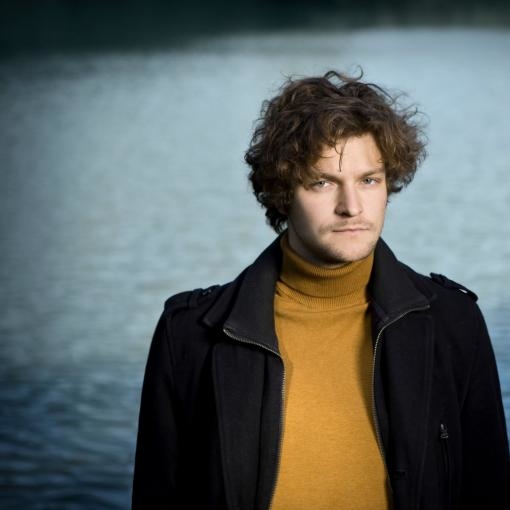Lidověk is the first solo album by Matěj Metoděj Štrunc, a young actor, singer and musician originally from Brno, frontman of the band Ateliér, and son of dulcimer player Dalibor and violinist Katerina Štrunc from the bands Cimbal Classic and Javory. The apple really did not fall far from the tree, but at the same time it came closer to other trees and colored itself with original colors.
The title of Štrunc’s album refers to folk songs, and in fact the recording really reflects them. The author says, “I have chosen songs that I remember my grandmother from Rožnov pod Radhoštěm singing to me as a child, or folk songs whose charm I only came across, for example, at dulcimer parties while studying at the conservatory.” In the field of world music or modern arrangements of folk material, it is common that in some cases it is impossible to draw a precise line between music that is “still” folk and arrangements so expressive that it actually becomes a new composition, either harmonically or sometimes melodically. Matěj Metoděj Štrunc chose a clear and radical solution. He kept the lyrics from the folk songs and invented completely new melodies. It is a rather daring discipline, one which even more experienced composers could “break their teeth” on. Although Štrunc did not excel in every single song, the overall result is good beyond expectations.
The chosen method brings several risks, both in relation to the composer himself and to the audience. Of course, we associate familiar folk songs with their melodies, and the alternative tune has a hard time fighting for the listener’s attention. On the part of the author, there is a danger of contaminating the new melody with elements from the original tune (although this may not always be detrimental), and even more dangerous is the possibility of falling into the snares of cliché or a certain authorial emptiness. In most cases, Štrunc has managed to endow the songs with music that is perhaps not more interesting (measured purely subjectively) than the originals, but one that can be thought about and which, after repeated listening, we can accept and perhaps even like.
However, the album is not just about changing the melody. What is important is the approach of the arranger, or more precisely, the producer. Matěj, whose voice does not deny his family heritage and in some moments can be mistaken for his father’s, moves away from the purely acoustic musical concept that his parents have been successfully offering for thirty years in the band Cimbal Classic. Although Lidověk is not a “modern” album at all costs, it is not a first-rate “folk music with drums” or “electronic folk music”, but it is certainly not afraid of elements from outside that do not belong to “pure” Moravian folklore. The album was produced by the “non-folk” musician Thom Artway, and in addition to acoustic instruments (including dulcimer and violin) he works with electric guitar, keyboards, distinctive bass lines and subtle electronic accompaniment. The word “subtle” needs to be emphasized, however. When the author of the album talks about working with elements of the drum & bass style, for example, it does not mean a mindless boombox but rather an audibly supported rhythm that moves the songs in the direction like the way Tomáš Kočko, for example, works with folklore (using slightly different means).
The album is more related to modern dance music by repeating patterns and passages, which in some passages border on an attempt to induce a trance-like experience. However, the author balances this with an emphasis on melody and a narrative style of singing that is closer to folklore than, for example, hip hop. However, when the listener begins to feel that the narrator is too “kind”, the singer adopts a completely different register, approaching chanting (Keď zme) and draws attention back to the rhythmic aspect of the songs.
It is this oscillation between folk material, proven over the years, and between new approaches, partly genuinely novel and partly informed by what has already worked on the domestic world music scene, that makes Lidověk a really interesting album. Matěj Štrunc’s portfolio has added – besides completely original songs for Ateliér and a few solo attempts (Ej Koločavjenka) – a new way of expression. It will be interesting to see whether and how he will follow Lidověk and whether he will be able to develop this way of working with folk material in an interesting way.
Matěj Metoděj Štrunc – Lidověk; published by Indies Scope 2022. 12 tracks, total time: 39:14
































No comment added yet..